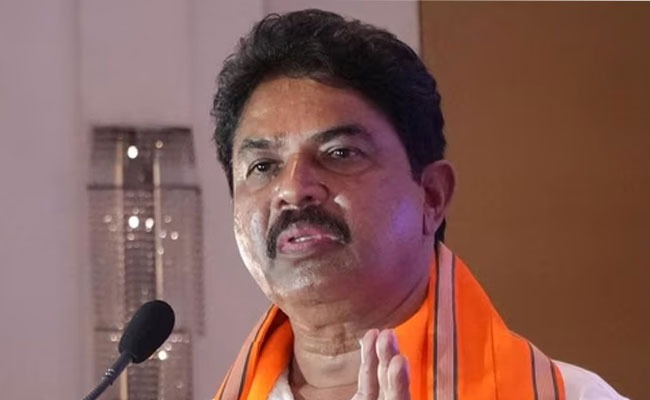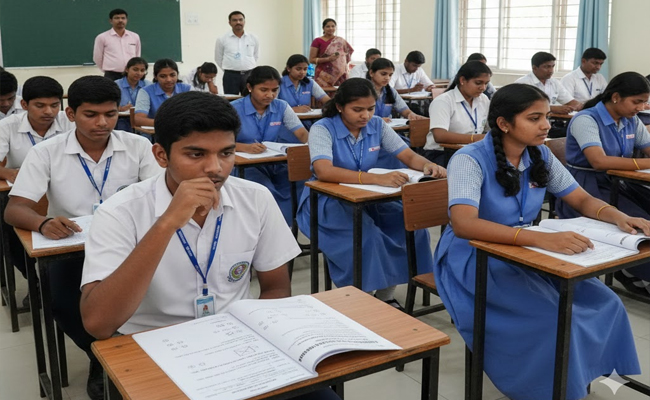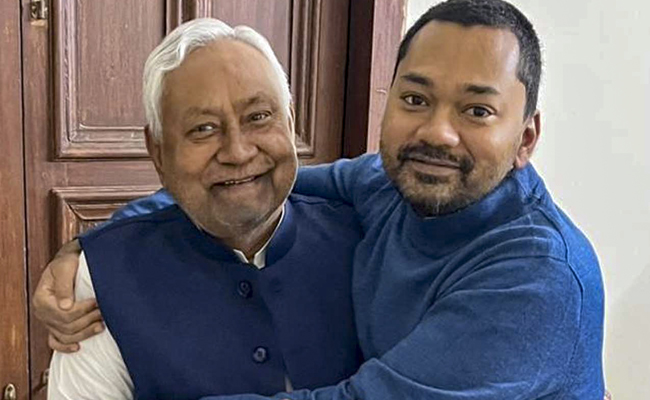San Francisco, June 20 : Despite talk of Digital India, only one-in-four in the country reported using the Internet in 2017, which is among the lowest in the world, according to a new survey by the Pew Research Center.
South Korea stands out as the most heavily connected society, with 96 per cent of adults reporting Internet use, showed the the survey conducted in 37 countries.
While majorities use the Internet in much of the world, sub-Saharan Africa and India has much to catch up with, according to the results released on Tuesday
Smartphone ownership among adults in India went up from 12 per cent in 2013 to 22 per cent in 2017, while social media use went up from eight to 20 per cent during the same period.
That means 78 per cent of adults in India do not own a smartphone and a whopping 80 per cent of the population in the country have no clues about Facebook or Twitter.
While the gap in Internet use between emerging and advanced economies has narrowed in recent years, there are still large swaths of the world where significant numbers of citizens do not use the Internet, the study said.
Internet penetration rates -- as measured by Internet use or smartphone ownership -- remain high in North America and much of Europe, as well as in parts of the Asia-Pacific.
Yet, others are not far behind. In Australia, the Netherlands, Sweden, Canada, the US, Israel, the UK, Germany, France and Spain, roughly nine-in-ten report Internet use.
Regionally, sub-Saharan Africa is one of the least wired parts of the globe.
However, among people who use the Internet, those in developing countries often turn out to be more likely than their counterparts in advanced economies to network via platforms like Facebook and Twitter.
In 2015-16, roughly four-in-ten adults across the emerging nations surveyed said they used social networking sites.
As of 2017, 53 per cent use social media. Over the same period, social media use has been generally level in many of the advanced economies surveyed.
The report also showed that there has been a steady increase in Internet use over the past five years among the 19 emerging and developing economies surveyed.
In 2013, only 16 per cent adults in India reported using the Internet. The percentage of adults using the Internet in India went up to 25 per cent in 2017.
Between 2013 and 2014, a median of 42 per cent across the emerging and developing economies said they accessed the Internet at least occasionally or owned a smartphone.
By 2017, a median of 64 per cent were online. Meanwhile, Internet use among the 17 advanced economies surveyed has remained relatively flat, with a median of 87 per cent across these nations using the internet at least occasionally in 2017, similar to the 86 per cent who said this in 2015 or 2016.
Similarly, in 2013-14, about a quarter of people in emerging and developing economies reported owning a smartphone.
By 2017, that share had risen to 42 per cent. Among the advanced economies, 72 per cent report owning a smartphone in 2017, the same rate as in 2015-16.
Let the Truth be known. If you read VB and like VB, please be a VB Supporter and Help us deliver the Truth to one and all.
New Delhi (PTI): At least three Indian seafarers on board foreign-flagged vessels were killed and one was injured in the Middle East region, the Directorate General of Shipping said on Tuesday as it issued an advisory for maritime operators to assess voyage-specific risks, amid escalated military actions involving the US, Israel and Iran that threaten disruptions of major trade routes.
"There have been four reported incidents involving Indian seafarers in the region, resulting in three casualties and one injured seafarer, all of whom were serving on board foreign-flagged vessels," the Directorate General of Shipping said.
On Tuesday, American and Israeli airstrikes continued to pound Iran since killing its Supreme Leader, Ayatollah Ali Khamenei, on Saturday. Tehran and its allies have hit back against Israel, neighbouring Gulf states, and targets critical to the world's production of oil and natural gas.
ALSO READ: Iran claims missile strike targeted Netanyahu’s office; says his fate ‘unclear’
President Donald Trump on Monday said the US has "the capability to go far longer" than its projected four-to-five-week time frame for its military operations against Iran.
In an advisory, the Directorate General of Shipping said it is closely monitoring the evolving maritime security situation in the Persian Gulf, Strait of Hormuz, Gulf of Oman and adjoining sea areas.
It said the threats of the recent geopolitical developments included missile and drone activity, electronic interference, and other maritime security concerns.
Stakeholders have been advised to maintain heightened vigilance and undertake voyage-specific risk assessments, and vessels operating in the region have been advised to maintain an enhanced security posture and bridge watch, ensure continuous communication readiness, and report any suspicious activity immediately, with transit through high-risk areas to be reviewed by operators based on prevailing conditions, the shipping authority said.
About the incident involving Indian seafarers, the Directorate said the remaining crew members on board are safe and secure, and the Directorate, as well as other authorities, are maintaining close coordination with all stakeholders to ensure their continued safety, well-being and timely support.
All necessary support, assistance and facilitation are being extended to the affected seafarers and their families, it added.
The directorate further said that it has activated enhanced monitoring and security oversight, real-time tracking of Indian-flagged vessels with increased reporting frequency and 24X7 monitoring.
"Mandatory reporting protocols have been prescribed for vessels, owners and managers, and close coordination is being maintained with the Indian Navy, Ministry of External Affairs, IFC-IOR, MRCC and Indian Missions," it said.
Shipping companies have also been advised to exercise due caution in crew deployment and to maintain regular communication with seafarers and their families.
The Directorate said a dedicated 'quick response team' has also been formed to ensure timely coordination among all concerned authorities, enable immediate response to emerging situations, and facilitate prompt assistance and support to Indian seafarers and their families.





